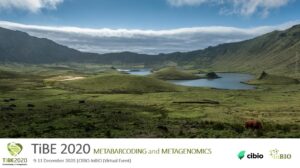IBI – InBIO BARCODING INITIATIVE: DNA BARCODING PORTUGUESE TERRESTRIAL INVERTEBRATE BIODIVERSITY
IBI – InBIO BARCODING INITIATIVE: DNA BARCODING PORTUGUESE TERRESTRIAL INVERTEBRATE BIODIVERSITY
Sónia Ferreira (CIBIO-InBIO) | November 5, 2019 | XI Congreso Nacional de Entomología Aplicada, Madrid, Spain
DNA barcoding is an essential tool for biodiversity monitoring and conservation studies. However, its applicability is hindered by the lack of comprehensive reference collections, particularly of invertebrates that are underrepresented in reference databases. In the Northwest of the Mediterranean Basin biodiversity hotspot, Portugal holds a unique and diverse fauna. Nevertheless, the vast majority of species remains understudied and underrepresented in DNA barcoding databases. InBIO Barcoding Initiative aims to fill the gap regarding Portuguese terrestrial invertebrate taxa. By combining field work and networking with taxonomists and ecologists, more than 7,000 specimens were already collected, and over 5,000 sequenced, covering over 150 families of insects from more than 20 orders. During the development of the IBI reference collection of DNA sequences, many relevant findings on the Portuguese fauna were made. For several groups, a reasonable representation has already been achieved. The state of the art of Dermaptera, Hemiptera, Lepidoptera, Mantodea, Mecoptera, Phasmatodea, Odonata, Orthoptera and Rhaphidioptera orders will be presented. Major challenges are the hyperdiverse orders such as Coleoptera, Diptera and Hymenoptera, which represent an enormous part of the invertebrate diversity and have remarkable ecological relevance but are poorly studied in Portugal. For these groups our focus is the establishment and strengthening of collaborations with taxonomists, and the intensification of the use of sampling techniques that target these taxonomical groups. DNA barcodes of Portuguese invertebrates facilitated the correct identification of enigmatic specimens, namely undocumented species in the region (indigenous and exotic), pinpointed the existence of undescribed species and allowed linking males and females of sexually dimorphic species. Cryptic diversity was found in several insect groups. The use of High-throughput Sequencing to produce the DNA barcodes also allowed tackling challenges posed by the existence of nuclear copies. Overall, IBI is expected to become a fundamental tool for biodiversity monitoring in Portugal.







